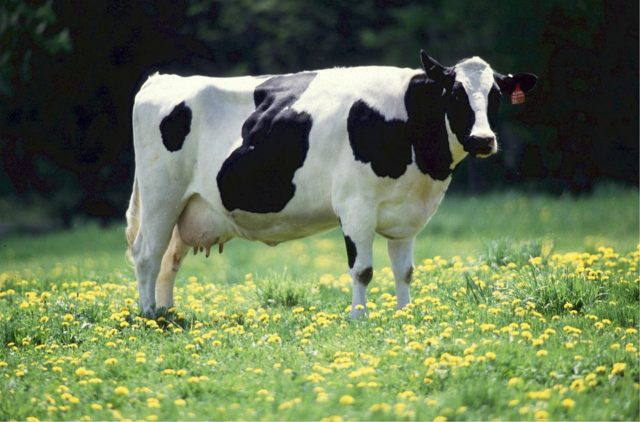Cows can now produce human insulin. Scientists from the University of Illinois Urbana-Champaign and the Universidade de São Paulo say they were able to genetically modify a brown cow in Brazil that then produced the insulin in its milk.
The scientists boast that this could herald a new era in insulin production by someday eliminating drug scarcity and high costs for people living with diabetes.
Will you offer us a hand? Every gift, regardless of size, fuels our future.
Your critical contribution enables us to maintain our independence from shareholders or wealthy owners, allowing us to keep up reporting without bias. It means we can continue to make Jewish Business News available to everyone.
You can support us for as little as $1 via PayPal at office@jewishbusinessnews.com.
Thank you.
Insulin is a hormone produced by your pancreas, a gland behind your stomach. It’s essential for regulating blood sugar levels in your body.
Diabetes is a chronic condition that affects how your body regulates blood sugar. In people with diabetes, either the body doesn’t produce enough insulin or the cells ignore the insulin that is produced. This leads to high blood sugar levels, which over time can damage your organs.
Commercially available insulin today is actually produced using a clever technique called recombinant DNA technology. Now, scientists can create human insulin in a lab using genetically modified bacteria. However, insulin comes with a variety of problems as mentioned above.
So, how will having cows produce human insulin change things? Basically, if this works then cows could produce many times more insulin per day than is currently made in labs, and the insulin would merely be a byproduct of its milk.
“Mother Nature designed the mammary gland as a factory to make protein really, really efficiently. We can take advantage of that system to produce a protein that can help hundreds of millions of people worldwide,” explained Matt Wheeler, professor in the Department of Animal Sciences at the University of Illinois.
Wheeler’s colleagues in Brazil inserted a segment of human DNA coding for proinsulin — the protein precursor of the active form of insulin — into cell nuclei of 10 cow embryos. These were implanted in the uteruses of normal cows in Brazil, and one transgenic calf was born. Thanks to updated genetic engineering technology, the human DNA was targeted for expression — the process whereby gene sequences are read and translated into protein products — in mammary tissue only.
“In the old days, we used to just slam DNA in and hope it got expressed where you wanted it to,” Wheeler said. “We can be much more strategic and targeted these days. Using a DNA construct specific to mammary tissue means there’s no human insulin circulating in the cow’s blood or other tissues. It also takes advantage of the mammary gland’s capabilities for producing large quantities of protein.”
When the cow reached maturity, the team unsuccessfully attempted to impregnate her using standard artificial insemination techniques. Instead, they stimulated her first lactation using hormones. The lactation yielded milk, but a smaller quantity than would occur after a successful pregnancy. Still, human proinsulin and, surprisingly, insulin were detectable in the milk.
“Our goal was to make proinsulin, purify it out to insulin, and go from there. But the cow basically processed it herself. She makes about three to one biologically active insulin to proinsulin,” Wheeler said. “The mammary gland is a magical thing.”
Conservatively, Wheeler says if a cow could make 1 gram of insulin per liter and a typical Holstein makes 40 to 50 liters per day, that’s a lot of insulin. Especially since the typical unit of insulin equals 0.0347 milligrams.
“That means each gram is equivalent to 28,818 units of insulin,” Wheeler said. “And that’s just one liter; Holsteins can produce 50 liters per day. You can do the math.”




